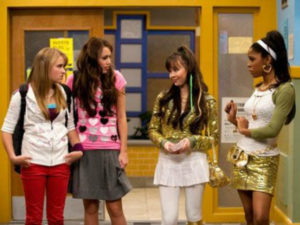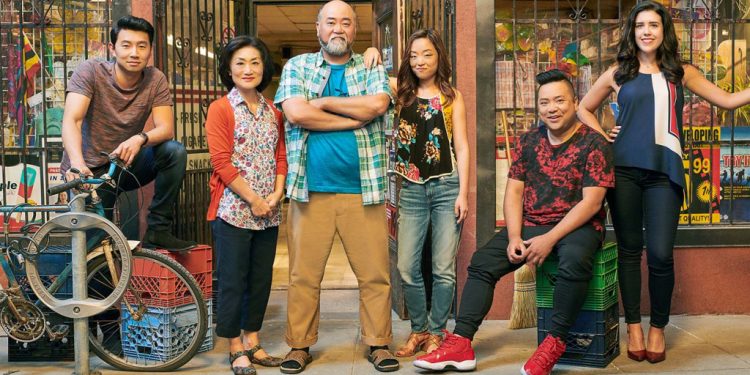Kanani Sato has served as an Outreach Intern at the Hawaii International Film Festival since 2021. Her interest in film stems from her love for costume and set design in movies and television. She is a strong advocate for diversity in media and strives to project Asian American and Pacific Islander voices in Hollywood.
With less than 20 days until the release, SHANG CHI AND THE LEGEND OF THE TEN RINGS was already gained attention in news outlets, as Disney’s CEO, Bob Chapek was criticized by the movie’s lead actor, Simu Liu, for calling the movie an “experiment.” Liu was outraged when Disney decided to block people from watching the film through Disney Plus’ Premier Access streaming services. This means that the movie will need to rely on making profits through the 45-day long window that SHANG CHI AND THE LEGEND OF THE TEN RINGS (2021) will play in theaters. In response to the release of this information, Liu went to Twitter to say, “We are not an experiment. We are the underdog; the underestimated. We are the ceiling-breakers. We are the celebration of culture and joy that will persevere after an embattled year. We are the surprise. I’m fired the f**k up to make history on September 3rd; JOIN US.”
As a young person on the internet, I’ve observed a lot of hype around the release of SHANG CHI AND THE LEGEND OF THE TEN RINGS (2021). As an Asian American myself, I am more than excited to see a second major motion picture with a largely Asian cast, since CRAZY RICH ASIANS was released in 2018. While I have yet to watch the movie, SHANG CHI AND THE LEGEND OF THE TEN RINGS (2021) has provided me with the Asian representation that I’ve been dying to see in Hollywood since I was a child. In this article, I will describe my experiences as an Asian American, who was obsessed with television, and explain why Asian representation is really that important.
As a child, my idol was Hannah Montana. HANNAH MONTANA (2006) was a show on Disney channel starring Miley Cyrus as Hannah, a young girl living a double life as a high school student and pop star. The show made me dream about being on TV, attending red carpets, and performing in my own concerts. Despite being a 7 year old, I was quick to shut down my own aspirations, as I felt there was no place in Hollywood for someone like me.

As an Asian American girl growing up in the early 2000s, there were less than five Asian people on TV that I could name. In my mind, Brenda Song, Jackie Chan, and Lucy Liu were the only three people that made up the entire Asian American bracket of Hollywood. Everyone else on TV was white, and every character that I related to was white. There were no cool Asian characters in the movies. Everyone who looked like me was cast as a worker in a Chinese restaurant or a nerdy student, who sat at the front of the class. As a girl who was academically successful, an athlete, and a self-proclaimed feminist, I never really related to these characters, especially since they often had no lines or were written to be very one dimensional. They were never interesting or fun. The only times they were considered “funny” was when they would bark out something in a thick Asian accent, which triggered a laugh track that told me it was meant to be comedic. Many times, these people didn’t even have funny lines. The entire punchline was their inability to speak English clearly. While I am not from a first-generation immigrant family, I imagine this could be hard to watch for someone who is. I imagine coming from a family whose first language is not English could make people feel overly conscious about their own pronunciation of English words or embarrassed of their parents’ thick accents. After all, the laugh tracks were directed at people who may have looked or acted like them. Reasons like this is why I found myself – at the young age of 7 – chastising myself for dreaming of fame. I saw how people like me were being treated and laughed at. And it was enough for me to stamp out any movie star aspirations that resided in my young mind.
My thoughts on Asian representation in Hollywood would not resurface until 10 years later, when I wrote an essay about Asian Americans and the racism that they continue to face in 2018. The essay caused me to stumble upon the fact that Asian people were often cast as characters, who were of different ethnic backgrounds. Ki Hong Lee, a Korean American actor, played a Vietnamese immigrant in the Netflix series, UNBREAKABLE KIMMY SCHMIDT (2015-2019). Even Simu Liu, a Chinese Canadian, played the son in a Korean family for KIM’S CONVENIENCE (2016-2021). Watching this happen again and again, I felt as if the ethnicities of Asian actors did not matter, but whether or not they fit the mold of “what an Asian person looks like” did. This way of thinking is problematic, as it causes non-Asians to group all Asians – whether they are Chinese, Japanese, etc. – together. Hollywood treats these cultures as if they are interchangeable, as if each does not carry a history that shaped their country’s people into who they are today.

Grouping Asian people into stereotypes became personally relevant to me with the onset of the COVID-19 pandemic, when I heard on the news that a Chinese international student was attacked in the streets by someone, who blamed him for carrying the virus from China. As someone who was often mistaken as an international student, I feared for my safety when stepping foot outside of my dorms. I was afraid that – despite being an Asian American – I would be grouped with the Chinese international students and be put in danger because of it. Because this was obviously a racially motivated hate crime, I couldn’t help but feel that America’s racism toward Asian people could not be more obvious.
This is why I cannot emphasize enough the influence that film and television have on American culture. When Hollywood executives refuse to tell stories from people of color, they are withholding them from sharing their authentic experiences. They deprive them of a chance to make themselves personable, to show people – who may not know individuals of other races and may hold hatred towards them – that they are human. POC artists and creators cannot establish themselves to be relatable or show their talents, if Hollywood does not grant them the resources or platforms that they would to any other film project. If POC actors continue to be limited by stereotypical characters connected to their race, they will continue to face the racism and discrimination of modern day society.
That is why SHANG CHI AND THE LEGEND OF THE TEN RINGS (2021) is so important. It is a marker of Asian actors breaking out of stereotypical roles. By being the Asian community’s first Marvel superhero, Simu Liu is proving to Hollywood that Asians can be the main characters in major franchise films. My hope is that the success of this movie causes people to see Asians as more than the one-dimensional characters that Hollywood has written them out to be. Furthermore, I encourage everyone to watch SHANG CHI AND THE LEGEND OF THE TEN RINGS (2021) in theaters, as it is a wonderful way to show your support for POC actors and will hopefully allow us to see more realistic and diverse examples of Asian representation in TV and films in the future.
